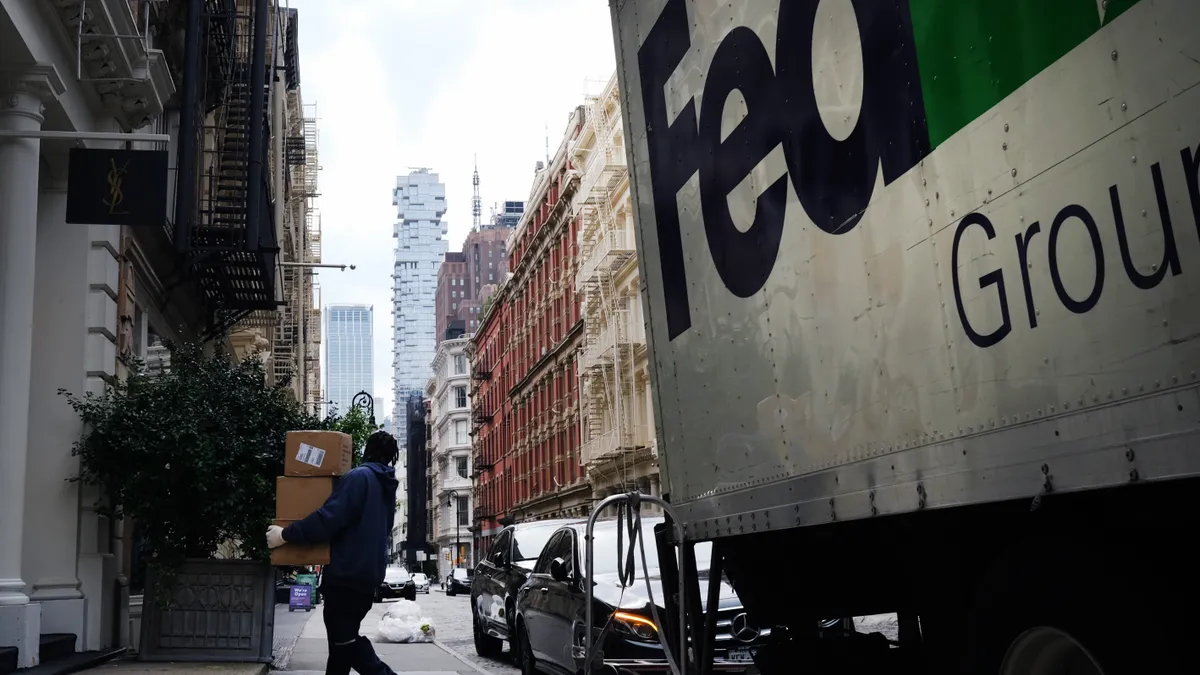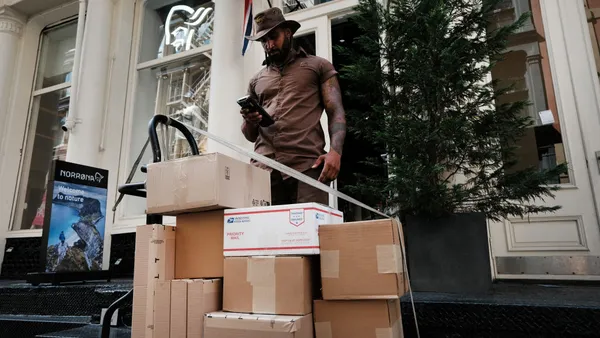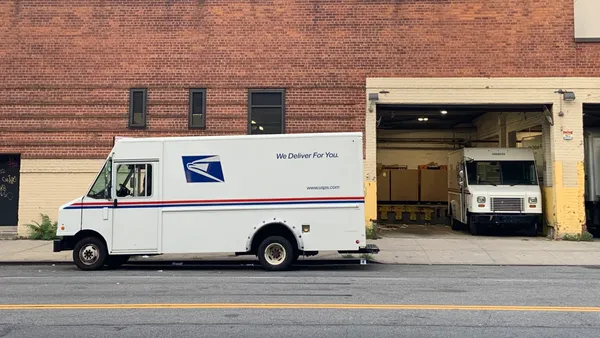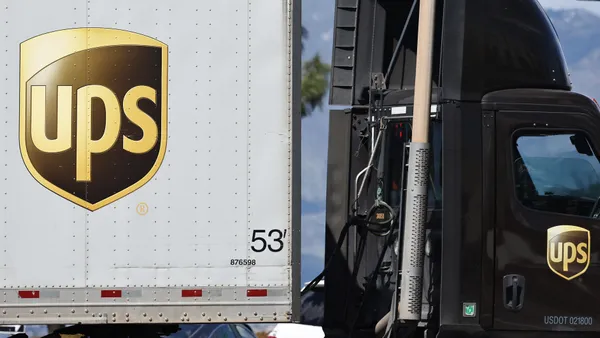Dive Brief:
- FedEx has reached "appropriate staffing levels" in its frontline workforce for the peak season, President and COO Raj Subramaniam said on its Q2 earnings call Thursday, after the company endured months of labor constraints that hurt service levels.
- The company brought on more than 60,000 frontline employees since September, Subramaniam said. It repositioned assets in its network, ramped up recruiting incentives and relied more on third-party transportation to mitigate issues resulting from the labor crunch, according to CFO Mike Lenz.
- The lack of employees cost FedEx an additional $470 million this past quarter, and its Ground unit bore the majority ($285 million) of those costs. Labor constraints will keep costs high through the second half of the fiscal year, though hiring challenges and network efficiencies are expected to ease in Q3, Lenz said.
Dive Insight:
Logistics and distribution employers have ramped up their benefits this year to attract and retain more workers, but companies are finding it's not a quick process.
FedEx flagged a lack of frontline employees as an issue in its previous two quarters. In September, FedEx Ground was rerouting more than 600,000 packages a day just to work around staffing shortages at company hubs.
At the time, Subramaniam said addressing staffing and retention challenges was the company's top priority ahead of a busy holiday stretch in which 90,000 new employees were needed. Other delivery giants including UPS, the Postal Service and Amazon (which has also reported labor challenges) were in pursuit of their own seasonal workforces.
What has FedEx done to attract those seasonal employees since then? Subramaniam pointed to pay premiums, more paid time off and tuition reimbursement incentives. These recruiting efforts are paying off, with FedEx hiring at a rate of 10,000 to 12,000 employees per week since Q2.
"The whole problem was our networks were inefficient," Subramaniam said. "And now even as we speak, we are reloading packages back to where it should be in the first place. And that's what's going to make the difference."
But FedEx's hiring focus won't dissipate after peak season. Subramaniam said the company is focused on retaining recently hired employees for the long haul to keep its network efficient.
Its competitors will be doing the same. But companies may have to revamp what a typical frontline job at a warehouse facility can be, Dale Young, vice president of warehousing and distribution at World Distribution Services, said in October.
"Hire someone full-time, they come to work every day and get their 40 hours and their benefits, and it's a normal job," Young said. "I think we have to do more of that and less of the seasonal (jobs) and bouncing people back and forth from facility to facility as the seasons change."














